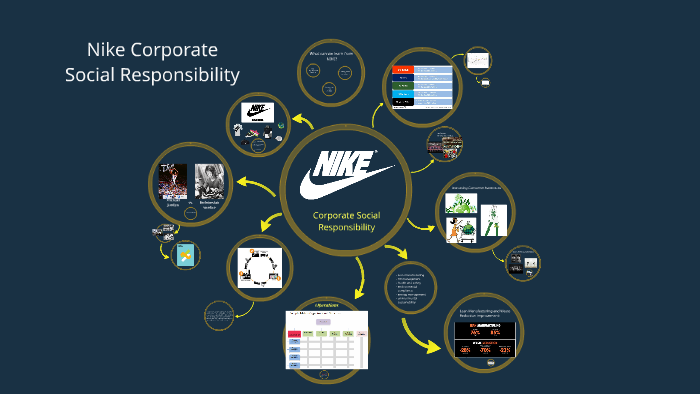Corporate Social Responsibility Events: Making an Impact in 2025
Corporate social responsibility (CSR) has evolved from a mere business obligation into an integral component of corporate identity. By 2025, the expectation on businesses to engage in CSR will be magnified, reflecting a broader societal commitment towards sustainable development, justice, and community well-being. This article delves into the transformative events surrounding CSR, examining their multifaceted contributions to society in the contemporary landscape.
The paradigm shift surrounding CSR obligations can be attributed to various factors, including stakeholder pressure, regulatory frameworks, and the rising prevalence of socially conscious consumerism. Analyzing these variables, we can discern how corporations are reimagining their strategies and implementations in the realm of social responsibility.
Understanding these motivators elucidates how various corporate events can foster key dialogues and initiatives that ripple through their communities and beyond.
Corporate Social Responsibility: An Overview of 2025 Trends
As we look ahead to 2025, several poignant trends are set to redefine the CSR landscape. Firstly, a pronounced focus on environmental stewardship will emerge, propelled by climate change concerns. This manifests not only through sustainability initiatives but also through enterprises aligning their business models with circular economy principles. Companies will face increasing scrutiny from consumers who prefer eco-friendly products and ethical sourcing practices. This, in turn, necessitates comprehensive sustainability events aimed at educating stakeholders and showcasing innovations in green technologies.
Secondly, there is a growing recognition of diversity, equity, and inclusion (DEI) as a fundamental aspect of CSR. Businesses will be compelled to cultivate inclusive workplaces that reflect the diversity of the communities they serve. Events centered around DEI—such as workshops, panels, and community outreach programs—will be pivotal in addressing systemic inequities and will foster greater cultural competency within organizations.
Lastly, the digital transformation is set to revolutionize how CSR initiatives are conducted. Virtual events will become commonplace, allowing for global engagement without geographical constraints. This will enhance collaboration amongst companies, non-profits, and community members, fostering a collective impact that transcends conventional local initiatives.
Engaging Communities through CSR Events
Successful CSR events hinge on authentic engagement with the communities they aim to serve. Organizations should conceptualize events that are not only informative but also transformative. For instance, experiential learning events—such as community clean-ups, tree planting, or charity fundraisers—create direct and meaningful connections between corporate entities and their surrounding environments. These initiatives incite a sense of shared responsibility, allowing employees, stakeholders, and consumers to participate actively in CSR efforts.
Moreover, corporate events designed around dialogue and collaboration serve essential functions. Conferences and webinars that focus on sustainable practices or social issues provide platforms for knowledge exchange and networking. Crucially, they foster partnerships between businesses and grassroots organizations that bolster collective efforts towards challenging social issues. The success of CSR, thus, is contingent on the establishment of such synergies.
The Melbourne Coffee Social Initiative, for example, showcases how local businesses can unite for community betterment. This initiative reveals the potential of localized CSR events to stimulate economic growth while prioritizing social impact. Such collaborations serve as blueprints for future corporate engagement strategies.
Evaluating the Impact of CSR Events
To ensure that CSR initiatives generate tangible benefits, businesses must adopt metrics for evaluating their impact. Developing cohesive frameworks that assess both quantitative outcomes—such as fundraising totals or volunteer hours—and qualitative insights, like community feedback and stakeholder testimonials, is essential. This dual approach not only reinforces accountability but also allows corporations to pivot their strategies based on real-time data.
Furthermore, transparent reporting on CSR activities fosters trust and credibility. By sharing successes and failures related to their initiatives, companies can stimulate meaningful discussions within broader audiences and, in turn, learn from the insights offered. This transparency can galvanize other businesses to embrace more profound scrutiny and commitment to CSR.
Conclusion: The Future of CSR Events
As entities navigate the complexities of societal demands and environmental imperatives in 2025, incorporating CSR into core business strategies will not just be a trend, but an expectation. Events will play a crucial role in this social landscape, providing forums for innovation, collaboration, and genuine contribution to community welfare. The advancement of CSR initiatives is not merely a business mandate; it is a moral compass guiding organizations towards a more equitable and sustainable future.
You May Also Like
Best Fish to Catch in Australia: A Guide for Anglers
Australia boasts an extraordinary diversity of fish species, making it …
Emily Bay Norfolk Island: A Hidden Gem in the Pacific
Emily Bay, a picturesque enclave nestled on the sun-kissed shores of …
Holidays on August 23: Global Festivities & Observances
August 23 is a date that carries a bouquet of cultural significance …





